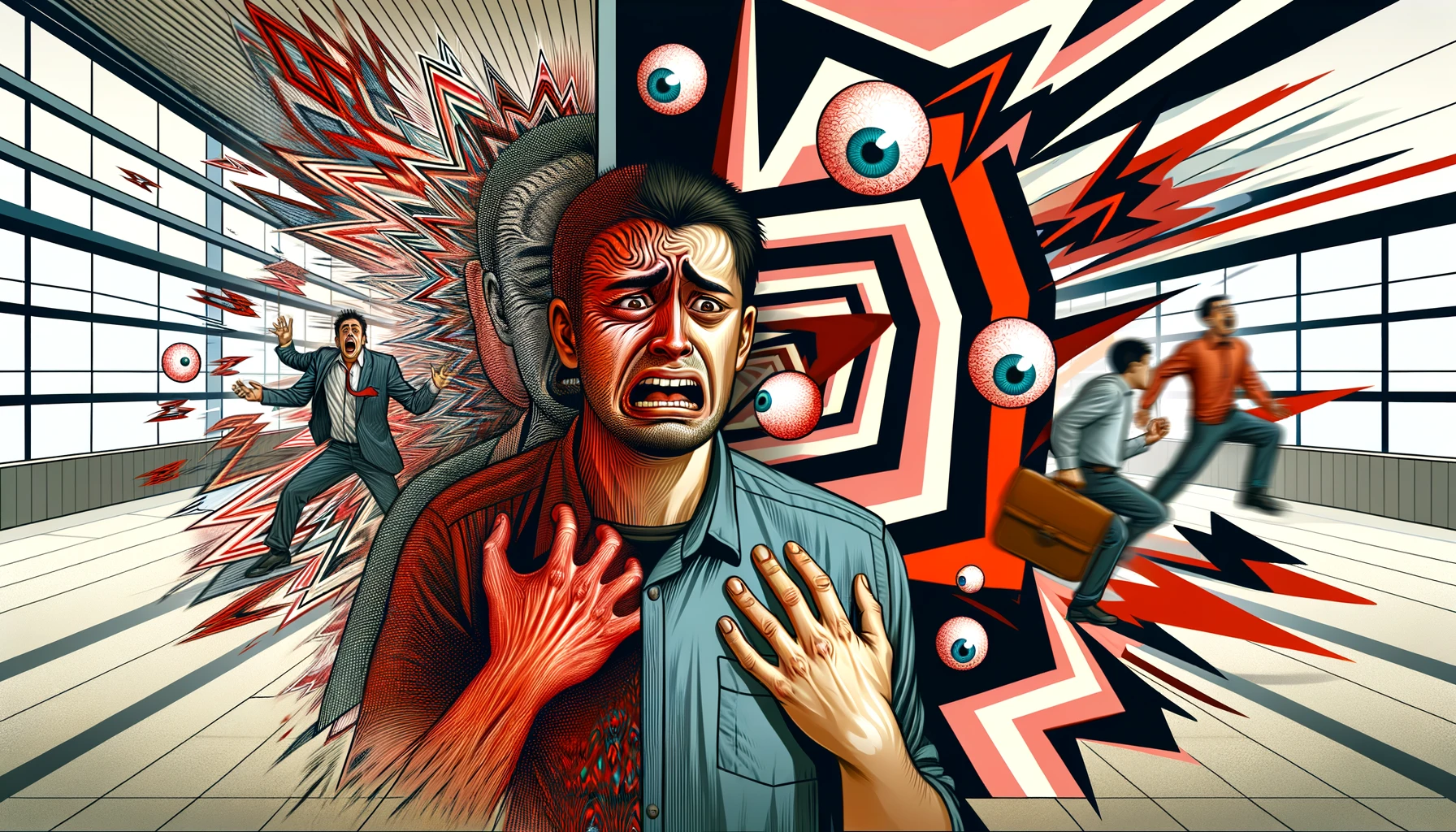
Why Do People Have Anxiety Attacks
Anxiety attacks, also known as panic attacks, are intense episodes of fear and discomfort that strike suddenly, often without warning. Understanding why people experience these attacks requires delving into a mix of biological, psychological, and environmental factors. While the exact cause can vary from person to person, several key elements play a role in their onset.
Biological Factors: Genetics can significantly influence the likelihood of experiencing anxiety attacks. Individuals with a family history of anxiety disorders are more prone to them. This genetic predisposition, coupled with certain neurobiological factors such as imbalances in brain chemicals like serotonin and norepinephrine, contributes to heightened anxiety responses.
Psychological Contributors: Psychological aspects play a crucial role. People with certain personality traits, such as those who are more prone to negative emotions or have a tendency to avoid dealing with stress, may be more susceptible to anxiety attacks. Additionally, past traumatic experiences, particularly those in childhood, can increase the risk of developing panic disorders later in life. This is often due to the long-lasting impact these experiences have on one’s perception of safety and control.
Environmental Triggers: Stressful life events, such as the loss of a loved one, significant life changes, or ongoing stress at work or home, can trigger anxiety attacks. Even everyday stressors, when accumulated, can precipitate these episodes. For some, specific situations or phobias – like fear of flying or claustrophobia – can trigger an attack.
Lifestyle and Habits: Lifestyle choices and habits also contribute. Poor sleep, excessive caffeine intake, and substance abuse, including alcohol and certain medications, can increase anxiety levels, thereby making a person more prone to panic attacks. Conversely, physical activity and a balanced diet can help manage stress and reduce the frequency of attacks.
Cognitive Aspects: How a person perceives and interprets certain situations significantly affects their susceptibility to anxiety attacks. Those who tend to misinterpret bodily sensations or overestimate danger in harmless situations are more likely to experience heightened anxiety, leading to an attack.
The Role of Stress and Anxiety: Underlying the occurrence of anxiety attacks is often a heightened state of stress or anxiety. This constant state of arousal can make the nervous system more reactive, leading to an exaggerated response to perceived threats – real or imagined.
In conclusion, anxiety attacks are the result of a complex interplay of factors. They are not merely a response to stress or fear but are underpinned by deeper biological, psychological, and environmental influences.
Understanding these underlying causes is crucial for effective treatment and management. Treatment often involves a combination of psychotherapy, such as cognitive-behavioral therapy, medication, and lifestyle modifications. Recognizing and addressing these factors can significantly improve the quality of life for those affected by anxiety attacks.
FAQ
What triggers an anxiety attack?
Anxiety attacks can be triggered by various factors including stress, traumatic events, or even specific phobias, and sometimes they occur without an obvious trigger.
How do anxiety attacks differ from general anxiety?
Unlike general anxiety, which is a continuous feeling of worry, an anxiety attack is an intense, overwhelming burst of fear that peaks rapidly and then subsides.
Can anxiety attacks cause physical symptoms?
Yes, anxiety attacks often cause physical symptoms like rapid heartbeat, sweating, trembling, shortness of breath, and dizziness.
Is there a genetic component to anxiety attacks?
Genetics can play a role, as individuals with a family history of anxiety disorders are more likely to experience anxiety attacks.
Can lifestyle factors influence the occurrence of anxiety attacks?
Yes, lifestyle factors such as high stress, insufficient sleep, and substance abuse can increase the likelihood of experiencing anxiety attacks.
Do anxiety attacks always have a clear cause?
No, anxiety attacks can sometimes occur spontaneously without a clear or identifiable cause.
Can anyone experience an anxiety attack?
Anyone can experience an anxiety attack, although individuals with anxiety disorders are more prone to them.
How long do anxiety attacks typically last?
Anxiety attacks are usually short-lived, often peaking within 10 minutes and then gradually subsiding.
Can anxiety attacks be prevented?
While not always preventable, managing stress, practicing relaxation techniques, and seeking therapy can reduce the frequency and intensity of anxiety attacks.
Are anxiety attacks a sign of a more serious mental health issue?
Anxiety attacks can be a symptom of an anxiety disorder, but not necessarily indicative of a more serious mental health condition. However, they should be evaluated by a healthcare professional.